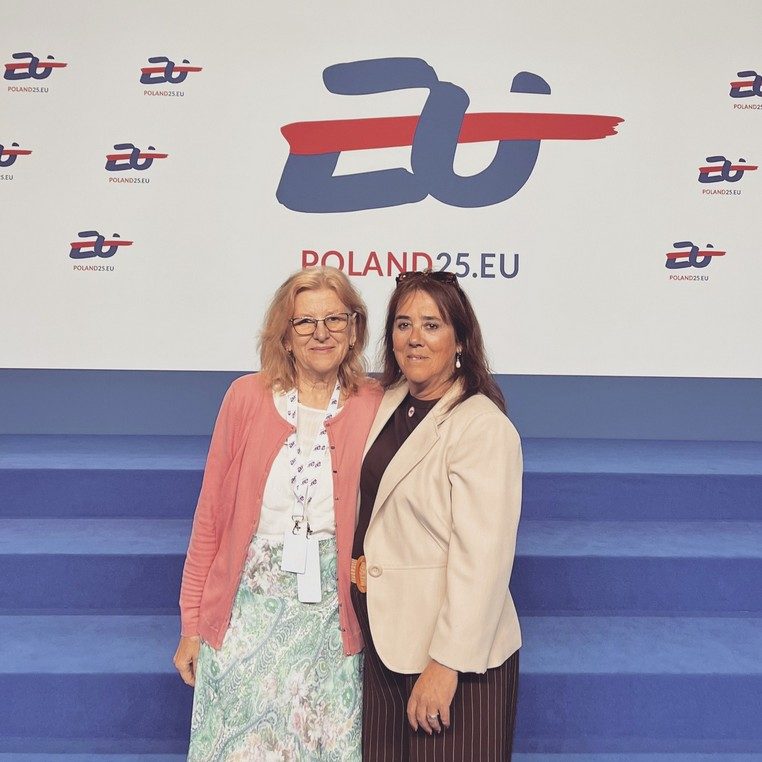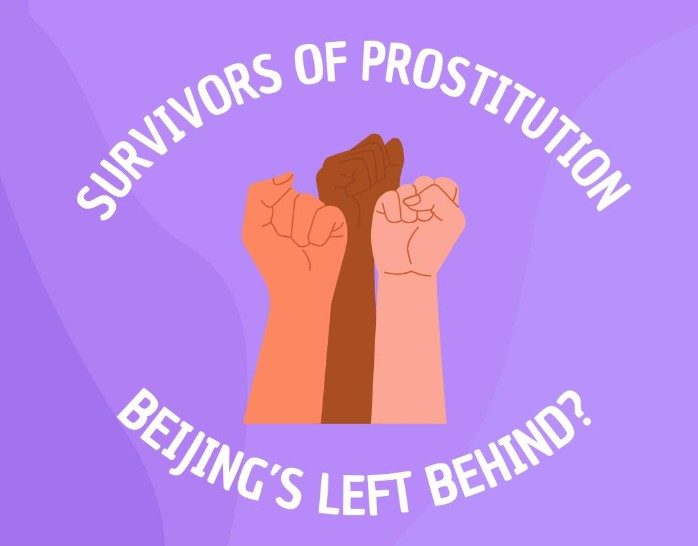[Brussels, 7 February 2017] The European Women’s Lobby welcomes the the Commission’s initiative for a European Pillar of Social Rights, which is very timely and offers an opportunity to put a people centered approach back into the heart of the European Union. Six years of austerity policies have taken their toll particularly on women’s rights and gender equality. A European Pillar of Social Rights is therefore an opportunity to restore trust in the EU.
Responding to the European Commission’s public consultation which ended on the 31 December 2016, the EWL considers the Social Pillar to be an opportunity to reinstate the long standing commitment of the EU to gender equality. In recent years, this commitment has taken back stage, despite the legal obligations of the treaties (the EU celebrates its 60th anniversary this year), with the result that progress has been slow in achieving gender equality. The withdrawal of the maternity leave directive, the stalling of the Women on Boards directive, the downsizing of the Strategy for equality between women and men from a full-fledged political strategy to a Commission staff working document, the failure to integrate a gender dimension into the Europe 2020 Strategy and the European Semester all bear witness to the way in which gender equality has been addressed.
The European Pillar of Social Rights therefore should be gender mainstreamed throughout the set of rights proposed in the consultation document and beyond. This is crucial to avoid the creation of further gender gaps in social rights and social security/protection systems. A gender lens provides an opportunity to shape the European society we all want, one that puts women and men on an equal footing to determine and reaffirm the European social model.
In the context of the public consultation, the EWL proposed three main recommendations for a European Pillar of Social Rights; these are:
• A Care Deal for Europe, a life-cycle approach for the right to care and be cared for, including work-life balance measures.
• The individualisation of social rights, to close the gender gaps with regards to pay and income and to ensure that women are economically independent regardless of their civil status.
• Boosting the European Social Model: Looking towards the future – New pathways for a European Social Protection and Social Security Strategy
A Care Deal for Europe, including work-life balance measures
Care policies and the provision of care services are intrinsically related to the achievement of equality between women and men. The lack of affordable, accessible and high quality care services in most European Union countries and the fact that care work is not equally shared between women and men have a direct negative impact on women’s ability to participate in all aspects of social, economic, cultural and political life.
Women have careers, jobs, professional responsibilities, and at the same time women continue to be in large part responsible for the care of their children, housework and care of dependents (whose numbers are increasing as the population ages). One way out of this “double life burden” for women lies firstly in changes in the gender division of work, leading to an equal sharing of caring tasks between women and men by striving towards an equal earner-equal carer model. Social and employment policies and the provision of services have a very important part to play.
Demographic projections show that in less than 20 years’ time one in five people in the EU will be aged 60 years or older with a significant portion of these people being over 80 years. At the same time, in the European Union, women are having fewer children. There is a causal link between the lack of reconciliation of private and work life options and the decrease of the birth rate. EWL believes that the key issue linked to the demographic challenge is the organisation and financial support of care for children and other dependent people, including older people and disabled people.
However, when addressing the issues in the care sector we must recognise two sets of needs and preferences – the needs of those dependent or older people themselves and the needs of those who provide their care. We must acknowledge that the bulk of care for older and dependent people at home is provided by women (informal carers) but also a large majority of those cared for are women. It is essential that the rights of all are being respected in the broadest sense of the concept. Caring for others is central to the continuation of society, and caring for others, and being cared for, at different stages in our lives, is one of the central emotional experiences of our shared humanity.
The European Council of Barcelona affirmed in 2002 that “Member States should remove disincentives for female labour force participation and strive, in line with national patterns of provision, to provide childcare by 2010 to at least 90% of children between 3 years old and the mandatory school age and at least 33% of children under 3 years of age”, yet fourteen years later, these targets have not yet been reached and disparities still exist between Member States, and between regions within Member States. The care sector (services, care provision and care leave policies) has disproportionately been impacted over the last six years by an austerity driven policy framework as the needs for care services are not being met and the potential to create quality jobs is missed.
Now is the time to go beyond Barcelona and to commit to a Care Deal which is one of the most critical investment for the present and the future. It’s time for a Care Deal for Europe, firmly established within the Pillar of Social Rights.
It has also become clear in the recent years that an integrated approach to work-life balance is needed, adapting working and learning conditions to the life-course approach with respect to both women and men, promoting a culture where women and men are equally considered as carers and as actors in the paid economy throughout their lives: equal carer-equal earner model. The core of such an integrated approach must be the goal to eliminate gender stereotypes perpetuating the traditional division of labour and the resulting inequality detrimental to women in relation to work and care work. Thus, besides guarantees that women are protected from the detrimental effects of discrimination and stereotypes, policies to promote the role of men in care and family responsibilities and encouraging men to take parental and paternity leave are also needed.
The EWL proposes the following guiding principles as priorities to be taken into account in relation to future European legislation and policies for the so called work-life balance package:
1. The revision and new legislation must guarantee women’s and men’s financial security and independence while they care for someone else. Guarantee means legal provisions protecting against any form of discrimination based on maternity/paternity/parental/carer, and complementary financial policy measures that deter employers from considering women a risky and expensive employee-pool and for men to consider parental leave as a career-threatening and financially risky undertaking. Security means guarantees for women’s/men’s right to time out without losing job/promotion possibilities/income. Care means caring for child(ren), elderly relatives, or any other dependant family member.
2. Changes must aim to radically increase men’s participation in care-work and to make their equal participation socially accepted, with the goal of achieving equal sharing of care-work and other non-paid work between women and men. Legal provisions must protect men against discrimination if they take leave by introducing mandatory leave provisions. Those measures must be accompanied by other policy measures such as education and awareness raising, so that men are encouraged to and employers promote the take up of paternity and parental leave.
3. New regulations must take account of the different forms of families existing in European societies, with the clear goal to remove any form of discrimination or discriminatory treatment of, for example, same-sex, non-married or single parent families, or underage mothers. Anti-discrimination measures in these cases must include the removal of any obstacle faced by partners, or other appointed family members to care for the dependants in the family and to take the necessary leave for such care-work.
4. Based on actual needs of women and men in the EU, types of leave other than maternal and parental leave must be recognised. Thus, care for other dependants, or sick family members, education-leave, paternity leave, adoption-leave, and leave during artificial insemination processes must be acknowledged
5. Legislation and policies regulating maternity, parental, or paternity leave must be in line with the absolute requirement of protection against violence in the family. Taking into account that on average every third woman in the EU faces partner-violence in her lifetime, laws and policies must make sure that violent family members cannot be obliged to stay at home under any type of care-related leave if mandatory leaves are introduced.
6. The protection and rights in relation to reconciling work and private life must be extended to all workers, including workers in atypical forms of employment.
7. Member States must ensure the provision of accessible, affordable and good quality care services for all dependants.
8. Taking into account the growing number of migrant women employed in the care sector, legislation must make sure that migrant women’s rights are protected and care work needs are not covered through the exploitation of migrant female labour.
9. Coherence between laws/policies in different fields is a pre-condition for work-life balance policies to be effective and successful. Thus, for example, policies on flexicurity must make sure that the concept of flexicurity does not get translated into exploitative working conditions (e.g. part time, non-secure, under-paid, short-contract work primarily offered to women) undermining any potentially positive development in the field of work-life balance.
The individualisation of social rights: closing gender gaps with regards to pay and income
In the majority of the EU member states, access to social protection and social security benefits are conditional of the status in the family. In the majority of cases, women are the prime care givers and shoulder the main responsibility and costs of unpaid care work. As such, they are considered as ‘dependents’ particularly if they are living in a household with other adult members and therefore do not have access to their own individualised social protection and social security rights. Women are maintained in a dependency status throughout their lives as witnessed also in the astounding 40% pension gap in Europe.
The individualization of social rights should be firmly established in the European Pillar of Social Rights with regards to all of the rights enumerated in the Commission’s Communication, in addition to:
• A Framework Directive on Minimum Income, as an individualised right, which would have a considerable impact on reducing the feminization of poverty and children’s poverty particularly in single headed households;
• A Directive on minimum/living wages; evidence shows that in sectors of the economy where minimum wage policy is applied, the gender pay gap is smaller, demonstrating that wage policies play a crucial role in addressing the gender pay gap and subsequently the gender pension gap later in the life cycle;
• An EU individualized unemployment benefit;
• Revision of the maternity leave directive to guarantee full pay and equal rights to all women;
• A Directive on individualised paid paternity leave including for same sex couples,
• An individualised paid carer’s leave Directive
Boosting the European Social Model: Looking towards the future – New pathways for a European Social Protection and Social Security Strategy
A European Pillar of Social Rights provides an excellent opportunity to restore the so-called European Social Model, i.e. the collective mechanism of solidarity providing a safety net against social risks throughout the life-cycle. Strengthening the unique European Social Model requires setting in place a European Social Protection and Social Security Strategy similar to the European Employment Strategy.
Such a Strategy would seek to address comprehensive social protection and social security issues and rights in terms of supporting a level playing field against social risks across the EU. Such a Strategy would also be coherent in the context of the mobility of workers and the portability of social protection rights, thus enhancing the current framework in the EU.
The guarantee of minimum income and related social assistance, would play a crucial role in combating poverty, social exclusion and inequalities across the EU and as a means of distributing income. It would also provide a spring board for exploring the funding of a future European Social Protection and Social Security System. In terms of funding mechanisms, the financial transaction tax, future proposals emerging from the common consolidated tax base (or corporate tax) and tax from productivity gains and the digital economy, as well as through the emergence of new forms of workers (robots) are all possible sources of funding a common European Social Protection and Social Security System.
The current discussions and proposal for a European Unemployment Benefit is a good example of the type of social security rights a European Social Protection and Social Security System could provide. Such a Strategy should incorporate a gender equality perspective from the outset to address gender gaps in terms of access to social protection and social security. For example, such a Strategy would guarantee that all women across the EU have the same rights with regards to paid maternity leave and that men (and same sex couples) would benefit from paid paternity and parental leave, which in the long term will boost the equal earner-equal carer model and the equal sharing of care responsibilities between women and men.


